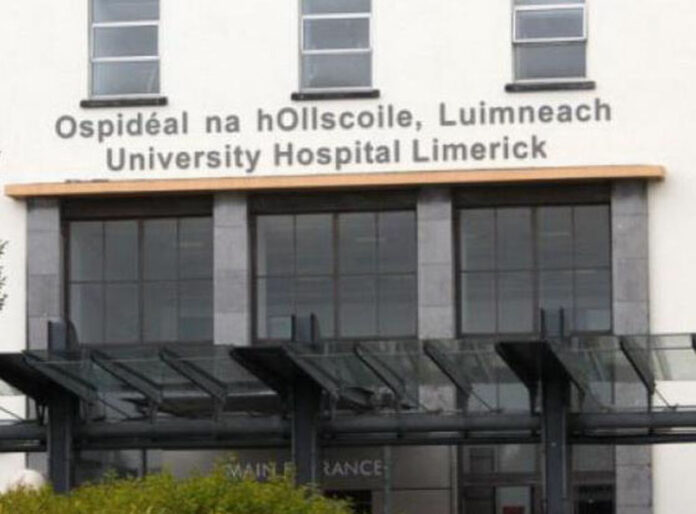THE number of critical care beds in University Hospital Limerick to treat seriously ill non-Covid-19 and Covid-19 patients has only increased by four, a hospital boss has confirmed.
UL Hospitals’ Group chief executive Colette Cowan has revealed there are currently 22 critical care beds in UHL – 12 intensive care and 10 high dependency beds.
This represents an increase of four since the start of the year. During the peak of the first wave, the group initiated their critical care surge plan involving training and redeployment of staff, the temporary conversion of other beds in the Critical Care Block into ICU/HDU beds and the procurement of equipment.
“The group are currently monitoring matters closely in the event we may need to open critical care surge capacity in the coming weeks. A plan is in place should we need to increase capacity,” she stated.
In a recent overview provided for public representatives, Professor Cowan confirmed it is planned to hand back the temporary Intermediate Care Facility (ICF) to the University of Limerick in early November, by which time some additional capacity will have opened at UHL.
The number of patients in the Intermediate Care Facility at UL Arena on Wednesday, October 7th was 28.
At the time of writing, she reported the incidence rate of Covid-19 in Clare and Limerick effectively trebled in the two weeks since her last update.
On October 7th, the 14-day incidence rate in Limerick was 108 per 100,000; 157 per 100,000 in County Clare and 55 per 100,000 in County Tipperary. The national incidence rate was 124 per 100,000.
Acknowledging the introduction of Level Three Covid-19 restrictions are difficult, she warned they could become even more difficult if the number of cases continues to deteriorate.
In recent weeks, public health specialists have reported multiple outbreaks connected with social gatherings and family events.
She urged people to reduce their social contacts and continue to observe public health advice around hand hygiene, face coverings, social distancing and cough/sneeze etiquette.
“The move to Level Three has no direct impact on the provision of hospital services but, unlike during the first wave, we are determined to keep additional service disruption to a minimum and continue to prioritise scheduled care for those who need it most as well as unscheduled care for the Covid-19 and non-Covid-19 streams.
The Hospital Crisis Management Team and Executive Crisis Management Team continue to meet to plan and put into effect a response to the ongoing public health emergency.
As of 8pm on Wednesday, October 7th, there were seven confirmed cases and seven suspected cases of Covid-19 in UHL. There was one confirmed case and one suspected case in critical care. There were two confirmed cases in Ennis Hospital.
An additional four beds have been opened on the haematology/oncology Ward 6B at UHL. This brings to 20 the number of beds open on this 24-bed single room ward.
The remaining beds will open by the end of this month as more staff are recruited. This was one of the building projects commenced in May of this year under the National Action Plan in Response to Covid-19.
The separate 14-Bed Block being developed at UHL under the same plan will also open before the end of this month.
In addition, the group expect that the refurbishment of the medical ward 3A at UHL will bring a further 16 beds back into use by the end of this month.
The group has commenced further emergency works at UHL to expand hospital testing for Covid-19.
Covid-19 testing is a cornerstone of the Government’s public health approach to pandemic, both in the community and in hospitals.
This rapid-build laboratory project commenced last month and is expected to be complete in early 2021. The new laboratory will provide a purpose build pre- Polymerease Chain Reaction (PCR), extraction, amplification and post PCR areas, all areas physically separated.
Current test capacity is in the region of 200-220 per day. The new instrument being delivered for the new lab will increase daily test capacity by 70%, delivering an anticipated daily average in excess of 300 per day once operational.
Dan Danaher
East Clare correspondent, Dan Danaher is a journalism graduate of Rathmines and UL. He has won numerous awards for special investigations on health, justice, environment, and reports on news, agriculture, disability, mental health and community.


